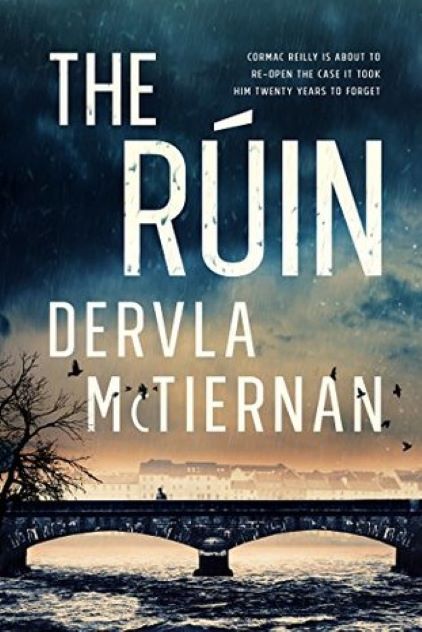It is 1993. Young and inexperienced Garda Cormac Reilly answers a call for help and witnesses a scene that will haunt him forever. Two silent, neglected children – fifteen-year-old Maude and five-year-old Jack – are waiting for him at a crumbling country house. Upstairs, their mother Hilaria Blake lies dead from an apparent drug overdose.
Fast forward 20 years to 2013. Surgical resident Aisling Conroy is happy with her life, living with her boyfriend Jack Blake. She aspires to become a surgeon. After a long night in A&E, she has breakfast with Jack and tells Jack that she is pregnant which will hinder her aspiration to become a surgeon. They are faced with a decision of whether to go for an abortion but decide to postpone making a decision. Aisling then goes to bed and when she wakes late that afternoon, she finds Jack gone . At first she isn’t worried but the next morning, she receives news that Jack has been found in the freezing waters of a river from an apparent suicide.
The death of Jack seems like an open-and-shut case. Aisling immerses herself into her study and work, trying her best to cope. Then Jack’s sister Maude shows up. Maude does not believe in the police’s verdict that Jack has committed suicide and suspects foul play and the police’s integrity, and she is determined to prove it.
DI Cormac Reilly is assigned with the re-investigation of the 1993 ‘accidental’ overdose of Hilaria Blake. Cormac is under increasing pressure to charge Maude for the murder of her mother. With hints of police corruption and politics, Cormac must work to prove that Jack’s death is not a suicide. He digs further and further into the case, trying to find a link between the two deaths two decades apart. He begins to have issues of trust, questioning who among his colleagues he can trust. He finds himself at odds with his law enforcement officers Danny McIntyre and Anthony Healy.
This unsettling crime debut draws us deep into the dark heart of Ireland and asks who will protect you when the authorities can’t – or won’t.
 CY@CY Says Welcome to my dreamscape. Where a Lim is also a Ling.
CY@CY Says Welcome to my dreamscape. Where a Lim is also a Ling.
